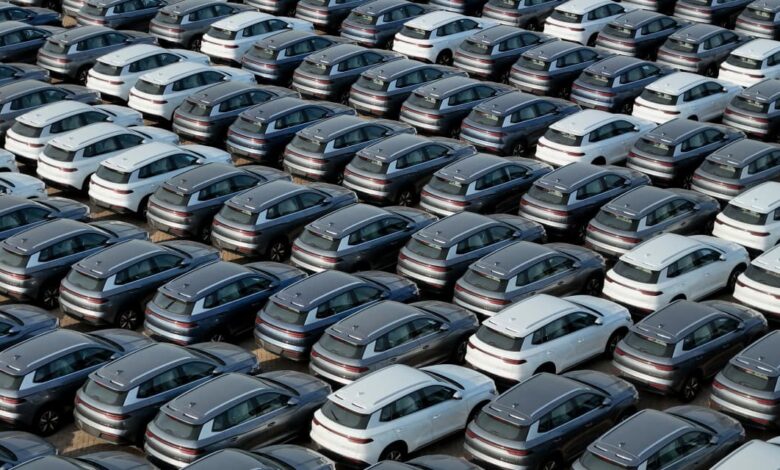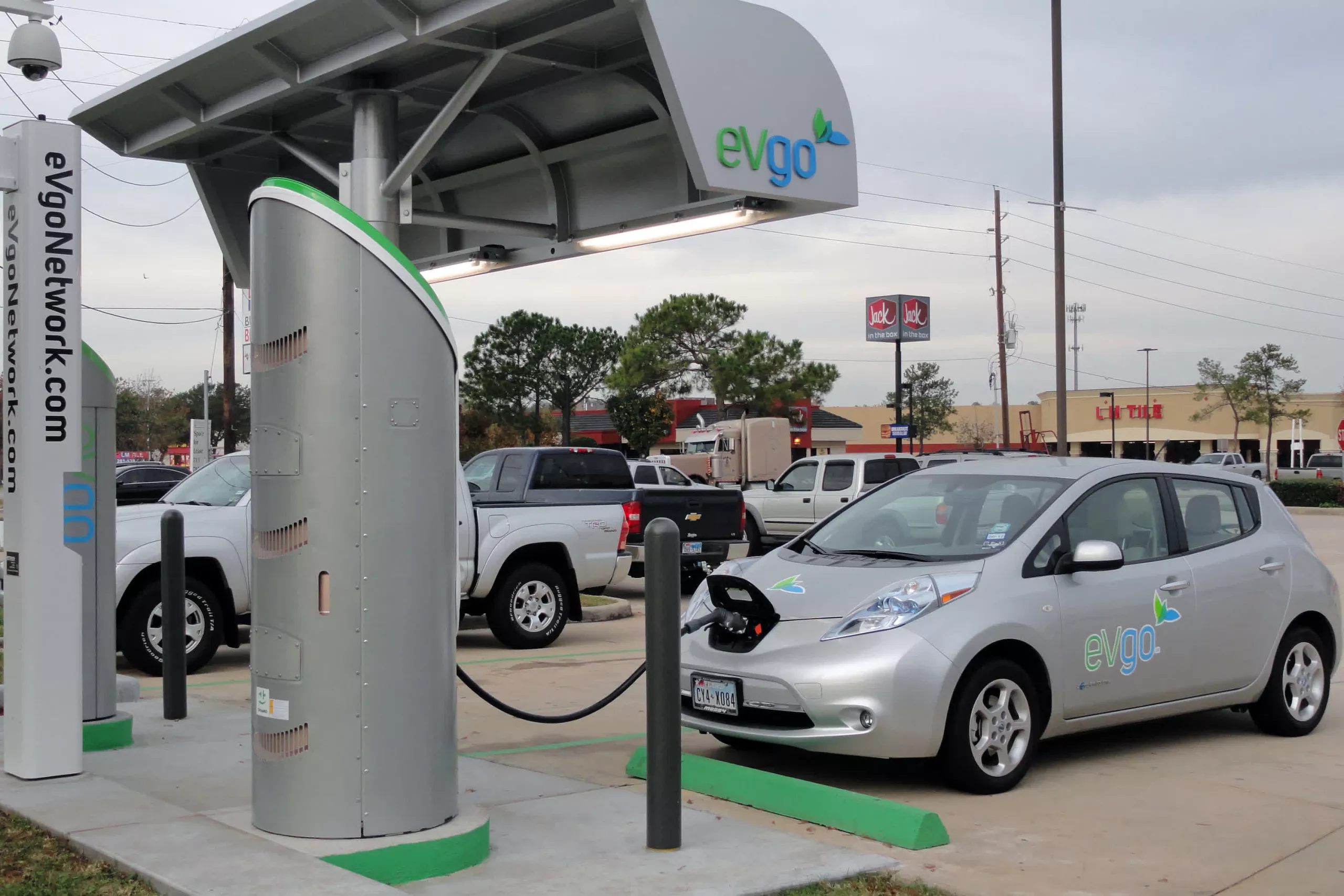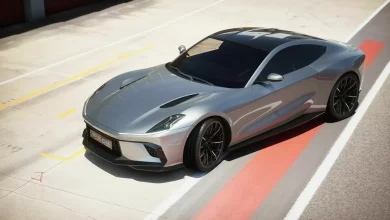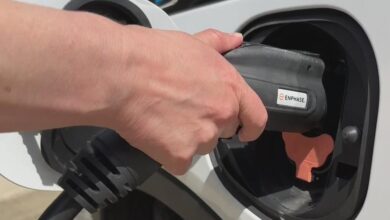Biden to Hike Chinese Electric-Vehicle Tariffs. That Helps Some and Hurts Others.

Higher tariffs on Chinese cars offer U.S. producers more protection. So why are all the stocks of U.S. car makers falling? Probably because nothing happens in a vacuum.
The Wall Street Journal reported Friday that the Biden administration was considering quadrupling the import tariff on Chinese-made automobiles. That would increase the import tariff to 100% from 25%.
It’s hard, if not impossible, to make money on a car with a 25% tariffs. It’s harder, and well more impossible, to make money with a 100% import tariff.
The White House didn’t immediately respond to a request for comment from Barron’s.
There is plenty of reason to fear the Chinese auto industry. It’s the world’s largest market for new cars and new electric vehicles. It processes most of the battery materials, and Contemporary Amperex Technology Co. Ltd., better known as CATL, is the world’s largest supplier of EV batteries.
Advertisement – Scroll to Continue
The existing 25% tariff only impacts a couple of companies.
and
make their EVs at facilities in China owned by car maker Geely. Those are subject to the existing tariff and would be subject to a bigger tariff.
Lotus and Polestar also didn’t immediately respond to requests for comment.
Polestar shares were down 2.3% on Friday. Lotus shares were off 2.2%. The
was up 0.1% and the
was down 0.2%.
Advertisement – Scroll to Continue
Those two companies will be hurt the most by rising tariffs. The impact on the overall U.S. EV market will be small, however. Both companies sell high-end EVs. Polestar delivered 2,210 cars in the U.S. in the first quarter for a market share of 0.8%. Lotus hasn’t sold any; deliveries of its EVs are set to start in the U.S. later this year.
and
benefit the most. They get the protection, along with any auto maker with domestic production.
Ford, GM, and
shares, however, all were trading lower. Tesla shares were off 2.4%, Ford shares were down 1.1%, and GM stock dropped 0.5%.
and
—like Tesla—sell only battery-electric vehicles. Both have U.S. capacity. Both sholdl benefit. Shares were down though on Friday. Rivian stock fell 2.1%, while
Advertisement – Scroll to Continue
stock was off 2.2%.
There is the potential for higher costs for components. The impact should be relatively small. Most parts are made regionally. More batteries are being made in the U.S. Large battery suppliers include Korea and Japan.
Investors just might not like the idea of a trade war. Other factors, of course, impact car stocks too. The U.S. 10-year Treasury yield was a little higher Friday. That can make financing cars more expensive.
The tariffs offer another layer of protection for domestic car producers. The immediate benefits are small. There aren’t a lot of Chinese-made cars on sale in the U.S. For now, U.S. investors don’t seem to care about the potential hike.
American depositary receipts of U.S.-listed Chinese EV makers were down too.
NIO
,
XPeng
,
and
Advertisement – Scroll to Continue
were falling 4.1%, 4.6%, and 2.7%, respectively. None sell EVs in the U.S.
The Chinese electric-vehicle makers weren’t planning on coming to America. Still, investors don’t appear to like that the chances of hitting U.S. shores were getting slimmer.
Write to Al Root at allen.root@dowjones.com



